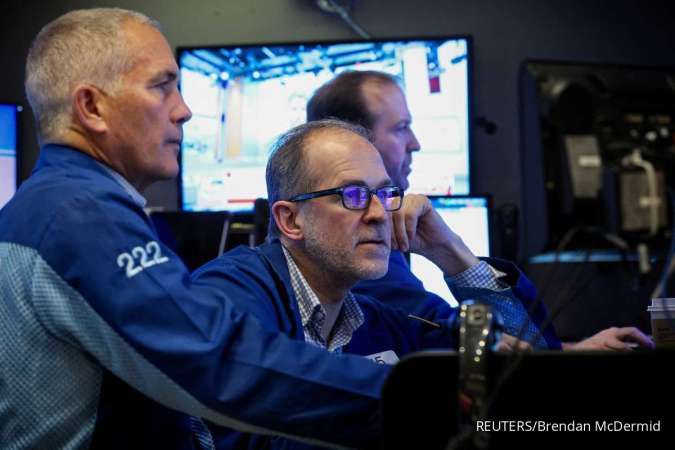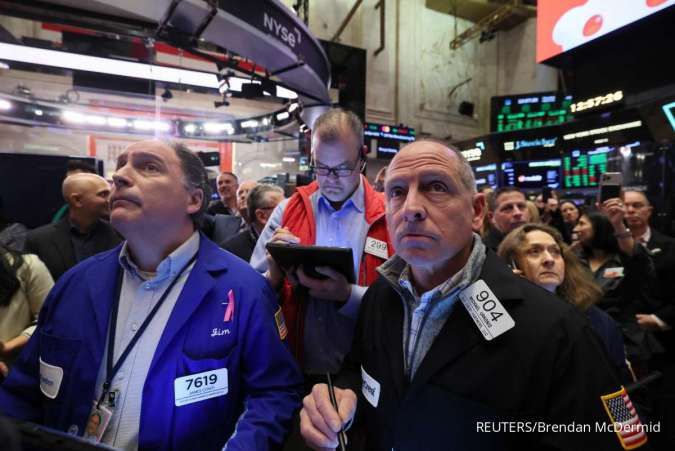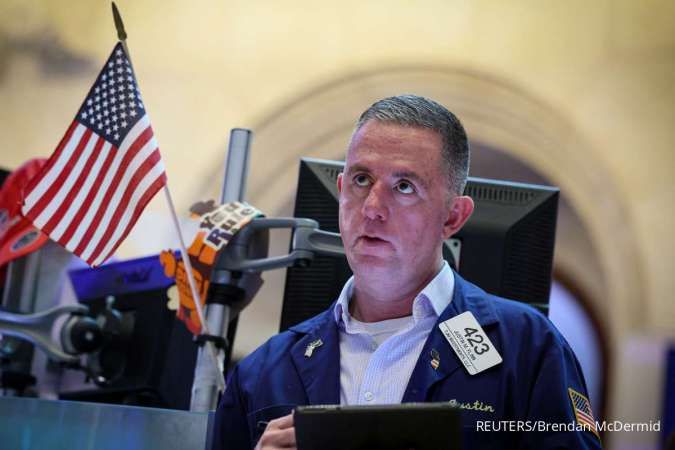GLOBAL MARKET - NEW YORK, May 3 (Reuters) - A gauge of global stocks rallied while Treasury yields fell on Friday after a U.S. payrolls report was softer than anticipated, easing concerns the Federal Reserve would keep interest rates higher for longer.
Nonfarm payrolls rose by 175,000 last month, the lowest since October 2023, and short of the 243,000 estimate of economists polled by Reuters.
The 3.9% annual change in average hourly earnings was the smallest since May 2021 and continued a steady decline toward the mid-3% range, which policymakers feel is consistent with their 2% inflation target.
Recent data on inflation and the labor market had fueled concerns the Fed could would be forced to keep rates higher for longer than the market was anticipating, or even raise rates again.
Read Also: US STOCKS - Wall Street Ends Sharply Higher, Jobs Data Strengthens
But at the end of its policy meeting on Wednesday, Fed Chair Jerome Powell the next move in rates would be down, seeing an unlikely chance of a rate hike.
"The combination of how Powell characterized the committee's stance on hikes relative to the data they were getting and then today's job reports, which was good but not super worrisome, especially on the wage side, it's setting up for kind of what we thought we had at the end of last year," said Scott Ladner, chief investment officer at Horizon Investments in Charlotte, North Carolina.
On Wall Street, U.S. stocks rallied, with each of the three major indexes up more than 1% and the Nasdaq leading the advance with a jump of about 2%.
Tech SPLRCT was the top performing of the 11 major S&P sectors, getting an additional boost from a jump of about 5.97% in Apple AAPL.O, after the iPhone maker reported its quarterly earnings and announced a record $110 billion stock buyback plan.
Read Also: SMI Loan Disbursement in Q4-2023 Reaches IDR 88.33 Trillion
Of the 397 companies in the S&P 500 that have reported earnings through Friday morning, 76.8% have topped analyst expectations, according to LSEG data, compared with the 67% beat rate since 1997 and the 79% over the past four quarters.
The Dow Jones Industrial Average .DJI rose 450.02 points, or 1.18%, to 38,675.68; the S&P 500 .SPX gained 63.59 points, or 1.26%, to 5,127.79; and the Nasdaq Composite .IXIC gained 315.37 points, or 1.99%, to 16,156.33.
For the week, the S&P 500 gained 0.55%, the Nasdaq rose 1.43%, and the Dow climbed 1.14%. The Russell 2000 small cap index rose 1.56%
Treasury yields fell, along with the dollar, after the payrolls report as investors increased expectations for a rate cut this year from the Fed in September, with markets pricing in a 66.8% chance for a cut of at least 25 basis points (bps), up from 61.6% in the prior session, according to CME's FedWatch Tool.
Read Also: US Job Gains Fewest in Six Months; Unemployment Rate Rises to 3.9%
The yield on benchmark U.S. 10-year notes US10YT=RR dropped 6.1 basis points to 4.51%, from 4.571% late on Thursday while the 2-year note US2YT=RR yield, which typically moves in step with interest rate expectations, fell 6.5 basis points to 4.8119%, from 4.877%.
The 10-year was down nearly 17 basis points on the week, its biggest weekly drop since mid-December while the 2-year was down about 19 basis points, its biggest weekly drop since early January.
MSCI's gauge of stocks across the globe .MIWD00000PUS rose 8.67 points, or 1.14%, to 769.19 and was up 0.91% on the week, on pace for its second straight weekly gain.
In Europe, the STOXX 600 .STOXX index closed up 0.46%, while Europe's broad FTSEurofirst 300 index .FTEU3 ended 8.84 points, or 0.44%, higher.
Read Also: Dollar Drops as Employers Add Fewer Jobs Than Expected in April
Against the Japanese yen JPY=, the dollar weakened 0.48% at 152.89 while Sterling GBP= strengthened 0.1% to $1.2547. The greenback has fallen more than 3% against the yen on the week, its biggest weekly percentage decline since late November.
The yen JPY=EBS continued its recovery from 34-year lows, capping a tumultuous week that saw suspected intervention from Japanese authorities on two occasions.
Traders suspect the authorities stepped in on at least two days this week and data from the Bank of Japan suggests Japanese officials may have spent roughly $60 billion to defend the beleaguered yen, leaving trading desks across the globe on continued watch for further moves by the central bank.
In commodities, oil prices fell and were on course for their steepest weekly loss in three months following the jobs report.
Read Also: Magnitude 6.0 Quake Strikes Philippines, Aftershocks and Damage Expected
U.S. crude CLc1 settled down 1.06% to $78.11 a barrel and Brent LCOc1 settled at $82.96 per barrel, down 0.85% on the day.
By Chuck Mikolajczak
(Reporting by Chuck Mikolajczak and Alden Bentley; editing by Jonathan Oatis)
/2024/04/26/1954692641.jpg)














